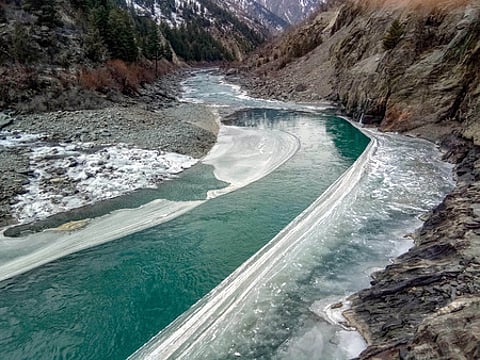

NEW DELHI: India has launched a pre-feasibility study for the construction of the Chenab-Ravi-Beas-Sutlej link canal project aimed at diverting water from the Chenab currently flowing into Pakistan under the currently inactive Indus Waters Treaty (IWT).
The project proposes to channel 15-20 million acre-feet (MAF) of water from the Chenab to Indian states of Punjab, Haryana, and Rajasthan, as part of a broader effort to strengthen domestic water infrastructure and assert greater control over Indus basin resources. The move follows the effective suspension of the Indus Waters Treaty under which India was permitted to use 20% of the basin’s water.
Additionally, a team has begun assessing the existing canal structures across Jammu, Punjab, Haryana, and Rajasthan. An officer involved in planning the study at the Ministry of Jal Shakti stated, “We need to evaluate if the water diverted from the Chenab through these canals is being delivered in proper condition and determine investment required for restructuring the canal system.”
In addition to the Chenab-Ravi-Beas-Sutlej link canal project, India is fast-tracking several new storage and run-of-river projects to support these initiatives. Under the IWT, India was allowed to use up to 20% of the water for non-consumptive purposes, and plans to demand permission to use up to 40% of the water in case of renegotiations, an officer said.